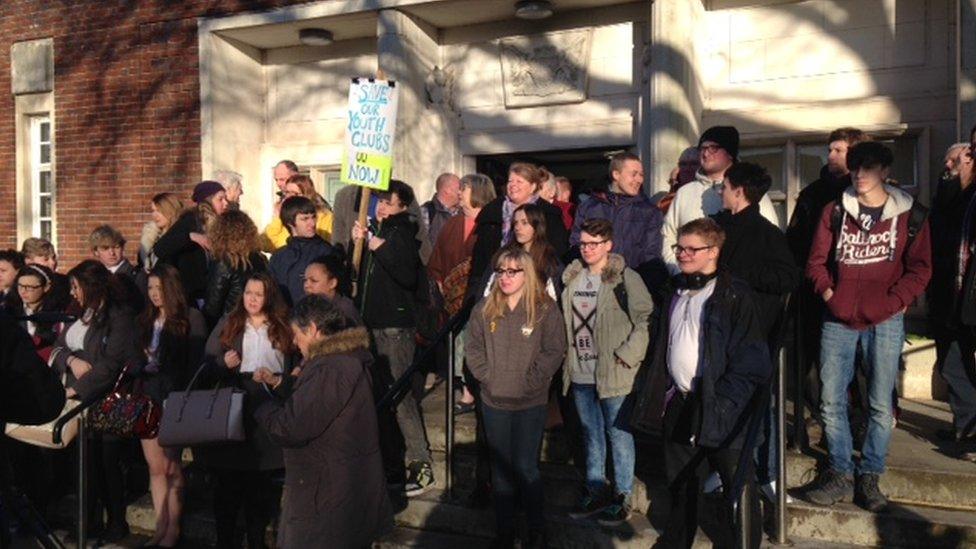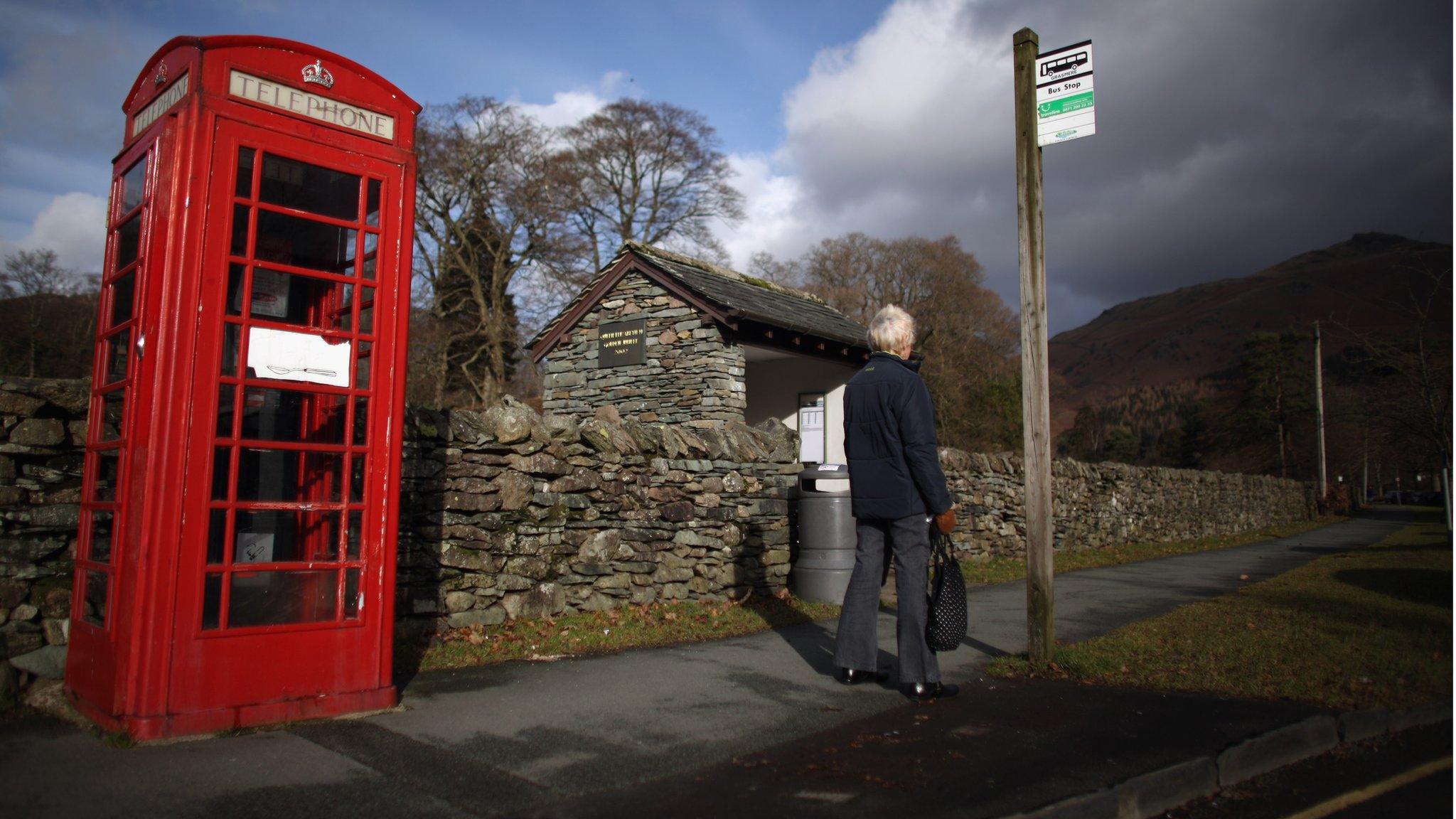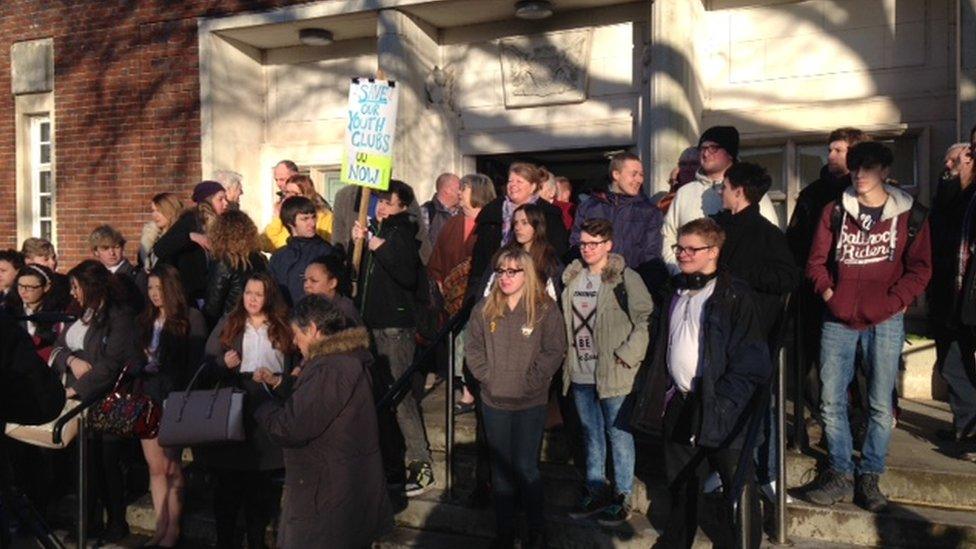Government funding 'not enough to avert Dorset cuts'
- Published

A protest was held outside County Hall in Dorchester as the county council met to approve cuts to youth services
More than £4m of extra government funding for Dorset is not enough to stave off cuts to youth and bus services, councillors have warned.
The cash is part of an extra £32.7m which is being made available to rural councils across England.
Dorset County Council had expected to save £13m for 2016-17, but changes to government funding in November meant it needed to find an extra £7m of cuts.
Therefore, it said the £4.1m funding did not change its proposals.
The authority is currently looking to save £500,000 from a review of rural bus services, external and last month it approved plans to remove funding for 22 council-run youth centres to try to save £1m.
The Department for Communities and Local Government (DCLG) said it was providing transitional funding to councils of £150m - with £32.7m for rural authorities - over the first two years of the Spending Review period, as they move towards local financing through council tax and business rates, instead of government grants.
The move came after consultation with local authority leaders, including in rural areas where it was argued they were not as well funded as those with major towns and cities.
'Point of no return'
Conservative-led Dorset County Council leader Robert Gould said the extra funding meant no more "knee-jerk decisions" would be made in the current financial year.
However, he said it still faced a "challenging situation" and pledged to lobby the government for a better long-term deal.
Liberal Democrat opposition councillor Roz Kayes said the extra cash "clearly isn't enough".
"The government has got to take responsibility," she added.
"It keeps passing the deficit on to local government and expecting them to cope, and it's got to the point of no return."
A DCLG spokesman said Dorset County Council was forecast to have more than £1bn to spend between now and 2020. including in "transitional funding" and rural grants.
He said the government was "providing a long-term funding settlement for the first time allowing local authorities to plan with certainty".
"With councils accounting for a quarter of all public spending they need to continue playing their part in reducing the deficit," he added.
- Published4 February 2016

- Published17 November 2015

- Published14 January 2016
